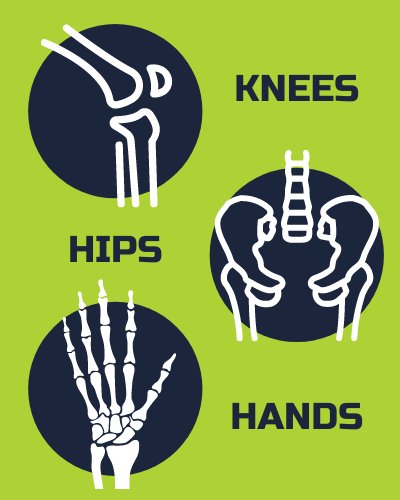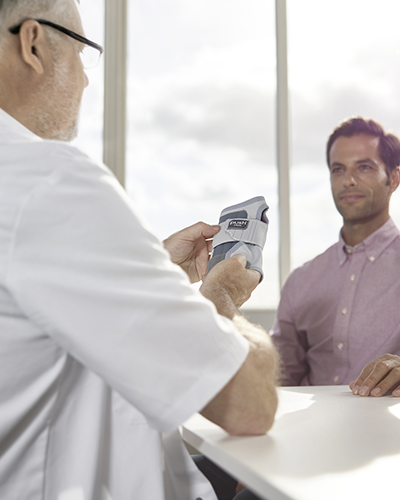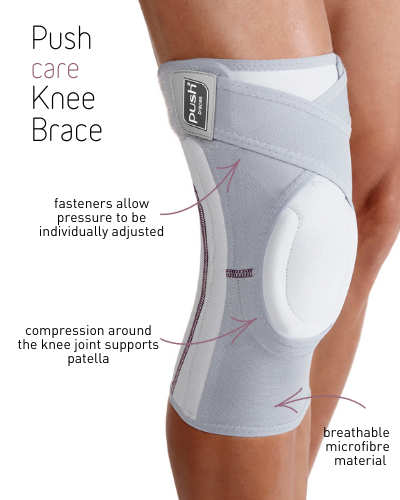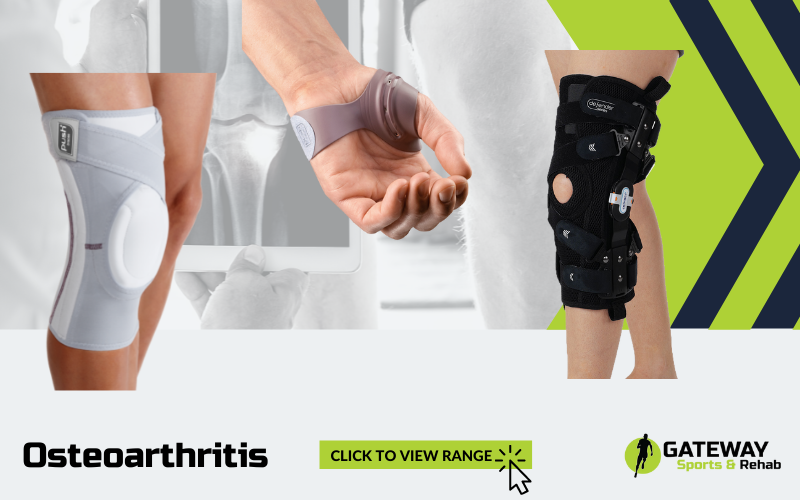30th Sep 2021
Learn About Osteoarthritis and Your Treatment Options
| What is Osteoarthritis? | |
|
Osteoarthritis is a long-term condition where the joints in your body become inflamed and damaged. Over time, the bones in the joint rub together, causing pain, swelling, stiffness and reduced movement. This can make it harder to walk, climb stairs or do other daily activities. The condition can affect any joint in the body, but mostly it affects the knees, hips, finger joints and big toe. While it can worsen over time, osteoarthritis can be managed effectively. Osteoarthritis is the most common type of arthritis in Australia. It is sometimes confused with osteoporosis, a different condition where the bones become weak, fragile and are more likely to break. |
|
|
What are the symptoms? |
|
|
The symptoms of OA vary from person to person. Your symptoms will also depend on which joints are affected. OA tends to come on slowly, over months or even years. The most common symptoms are pain and stiffness of the joints. These sensations are usually worse with activity initially but can be more constant in later disease. These symptoms may affect your ability to do normal daily activities, such as walking, climbing stairs and opening jars. Other symptoms may include clicking noises, grating sensations, or a loss of flexibility in a joint. |
|
|
What causes it? |
|
|
Research shows there are some things that may put you at more risk of developing OA in certain joints, such as: |
|
|
|
|
|
How is it diagnosed? |
|
|
Your doctor will diagnose OA from your symptoms and a physical examination. An x-ray may show the narrowing and changes in the shape of your joint. However x-rays do not diagnose how much trouble you will have. An x-ray that shows joint damage does not always mean you will have a lot of pain or problems. On the other hand your joint may be very painful despite x-rays being normal. Blood tests are only helpful to rule out other types of arthritis. |
|
|
What will happen to me? |
|
|
The impact of OA on your normal activities and lifestyle depends on which joints are affected. However the outlook for most people with OA is very positive. For many people OA will be mild and not cause major problems. OA of the hip and knee can sometimes cause severe disability and surgery to replace joints may be necessary. Joint surgery is usually only an option if less invasive treatments, such as weight loss, exercise, and medicines, have failed to control your symptoms. |
|
|
Is there a cure for osteoarthritis? |
|
|
Currently, there is no cure for OA. While there are treatments that can effectively control symptoms, you should be wary of products or therapies that claim to cure OA. |
|
| What Treatments Are There For Osteoarthritis? | |
|
Treatments for OA vary depending on which joints are affected and the severity of your condition. There is no way of predicting exactly which treatment will work best for you. Each treatment has its own benefits and risks. Your doctor may need to trial several different treatments before finding the one that is right for you. |
|
|
|
In general terms, treatment usually includes:
|
|
Your local Arthritis Office has information on physical activity, healthy eating, medicines and surgery. |
|
| HOW CAN WE HELP | |
|
At Gateway Sports and Rehab we offer a wide range of medical braces to aid in the treatment of osteoarthritis symptoms, including our Push care Knee Brace, which offers compression around the knee joint and supports the patella which improves the sense of stability and users experience pain relief. IMPORTANT Correct use of your brace requires a detailed diagnosis of the cause of your pain complaints or instability. Always consult your GP, a physiotherapist or a specialist before applying the brace. |
|
|
|
The Push care Knee Brace offers compression around the knee joint and supports the patella which improves the sense of stability and users experience pain relief. The fasteners allow pressure to be individually adjusted. Users will be aware of the comfortable support this offers and thus be encouraged to attempt more active movement. Indications:
|
|
Your local Arthritis Office has information, education and support for people with arthritis : Infoline 1800 011 041 www.arthritisaustralia.com.au |
|
| Source: https://arthritisaustralia.com.au/ | |





